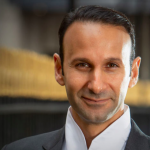Are our leaders up to the challenge?

Recently, I had a conversation with a friend, who said: “This is crazy! Everyone around me is either renovating or getting a divorce, looking for a new job, or a new career path.
And this is even before considering the unsettling macro issues in the Australian society and globally! It seems that the COVID lock-down took people out of balance and that new habits and resolutions emerged. People are looking for a change- personal and societal change. The question is, are our leaders up to the challenge?
We are all familiar with the current situation: the COVID vaccinations are not on target, misogynism and violence towards women are part of the norm, the death of indigenous people in custody is just one of the symptoms of how we treat indigenous communities, the economic recovery is threatened by closing the borders between the states, and we can go on and on and on.
The point is that, yes, Australia is currently is in a better position than many other countries around the world, but with silos, it might not last. Leaders need to pick up the game, look for our society’s long-term health, and work together on this adaptive challenge. They need to embrace a different framework for problem-solving.
And they can find the answer within the Adaptive Leadership framework. Studying at Harvard University, we learned the difference between technical and adaptive challenges. Technical problems are those where there is already expert knowledge on how to solve them. Adaptive challenges, on the other hand, are more complex; their novelty requires the building of new capacity and restoring of trust. They involve sub-groups and conflicting values.They require efforts, attention and collaboration, because they are complex and beyond the leader’s current expertise. Leaders cannot solve these problems on their own. They need to distribute the leadership across the society.
The easy way out is to ignore the adaptive challenge and provide short-term solutions that buy votes. Allocate some money here, change a policy there. By doing so, they wrongly attempt to apply pre-existing solutions to problems that require new solutions. No one state nor one party can solve the problem.
A fundamental change can only happen if we consider the adaptive issue. The Adaptive Leadership framework guides leaders in both the private and public sectors. It calls leaders to:
- Get on the balcony and diagnose the challenge. Zoom out from the scene and look at it from a distance to receive perspective. See the big picture, detached from your emotions and personal views, pause and reflect.Getting on the balcony will help you in framing the problem accurately.
- Consider the different perspectives of ALL the stakeholders and subgroups. Look at the collective problem, not just one agenda. Look for the competing moral/values and trade-offs of the different groups.
- Implement interventions by mobilising people to experiment on how to make progress together.
Adaptive problems and the renewal of trust require a strategic approach. On the one hand, we want to continue the great work of ensuring Australia is clear of COVID, which increases public confidence and strengthens the economy. On the other hand, social issues require trade-offs. Sub-groups have different agendas and conflicting values and priorities.
Leadership is about disappointing people at a level they can tolerate! (Professor Ronald Heifetz, Harvard Kennedy School). It is hard and puts enormous pressure on the decision-makers and requires strong collaboration across federal, state and local entities. Leaders need to implement new solutions, which means experiment with interventions we haven’t tried before. Some will succeed; others might fail and require pivoting.
A new way of thinking, a more holistic view, a new way of leading are required to see us all thriving sustainably for the long term.
Dr. Zivit Inbar is the CEO and founder of DifferenThinking a consulting practice that specialises in people, culture, leadership & ethics. Dr Inbar has over 17 years of experience and expertise building high-performance teams, driving high-level strategies and processes at the board and executive levels, spanning private and listed local and global organisations (China, APAC, Europe and the US).








